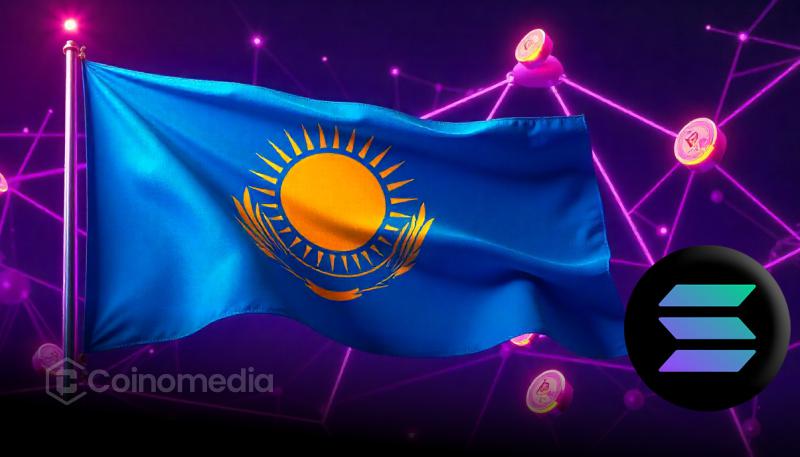Kazakhstan Launches Evo Stablecoin on Solana
Kazakhstan introduces Evo (KZTE), a tenge-pegged stablecoin on Solana, with Mastercard aiding global use.

- Kazakhstan pilots Evo stablecoin pegged to tenge
- Issued via Intebix and Eurasian Bank on Solana
- Mastercard supports global interoperability
Kazakhstan has officially entered the stablecoin space with the launch of a national pilot project called Evo (KZTE). The stablecoin is pegged 1:1 to the Kazakhstani tenge and is designed to facilitate fast, secure, and cost-effective digital payments within the country and beyond.
This initiative is a collaborative effort between three major players: Intebix, a licensed cryptocurrency exchange in Kazakhstan; Eurasian Bank, a local financial institution; and global payment giant Mastercard. The Evo stablecoin is being deployed on the Solana blockchain, a high-speed network known for its scalability and low transaction costs.
The pilot aims to explore how blockchain technology can modernize Kazakhstan’s financial infrastructure, offering citizens a digital alternative to cash while enhancing transparency and efficiency in financial transactions.
Mastercard Boosts Global Usability
One of the standout features of the Evo stablecoin project is its global interoperability, made possible through Mastercard’s payment infrastructure. This means users could potentially use Evo for international payments, online shopping, and even in-store purchases wherever Mastercard is accepted.
By integrating Evo with Mastercard, Kazakhstan is not only positioning itself as a regional leader in blockchain adoption but also demonstrating how public-private partnerships can bring digital finance closer to the mainstream. This could be particularly impactful for cross-border payments and remittances, making transactions cheaper and quicker for individuals and businesses alike.
Built on Solana for Speed and Scalability
Choosing the Solana blockchain gives Evo a strong technological foundation. Solana is capable of processing thousands of transactions per second, making it ideal for a high-volume, national-scale stablecoin. Its low fees and robust smart contract capabilities also support a range of future use cases—from DeFi integrations to retail payments.
If successful, the Evo pilot could set the stage for broader digital currency initiatives in Kazakhstan, including potential central bank digital currency (CBDC) developments.
Read Also :
- New Senate Bill Aims to Clarify Crypto Regulations
- Trump Hotel Maldives to Be Tokenized via Dar Global
- Over $300M Liquidated in Crypto in Just 4 Hours
- Cboe to Launch Continuous Bitcoin Futures Dec 15
- VanEck Solana Staking ETF Goes Live in the U.S.



